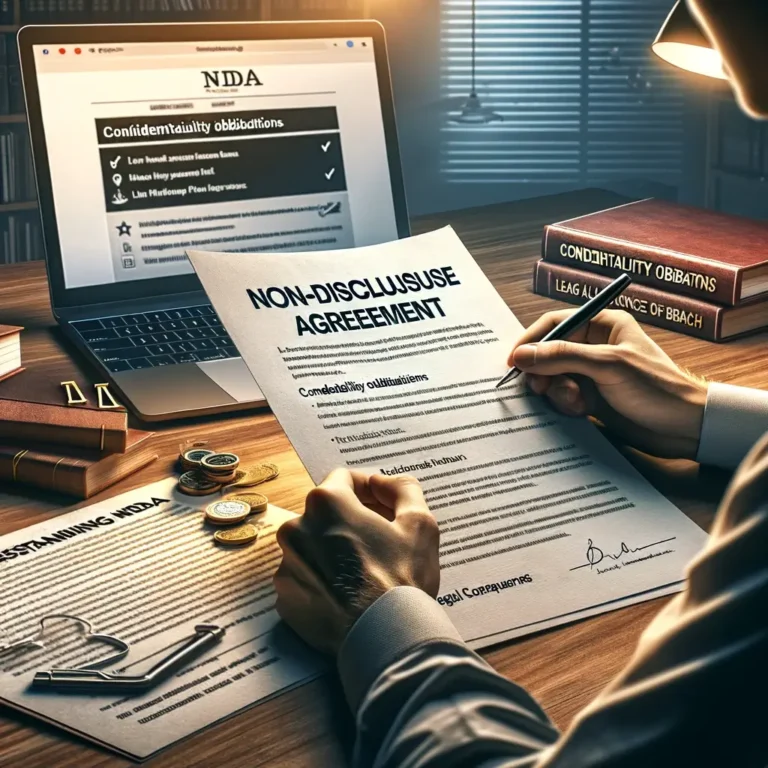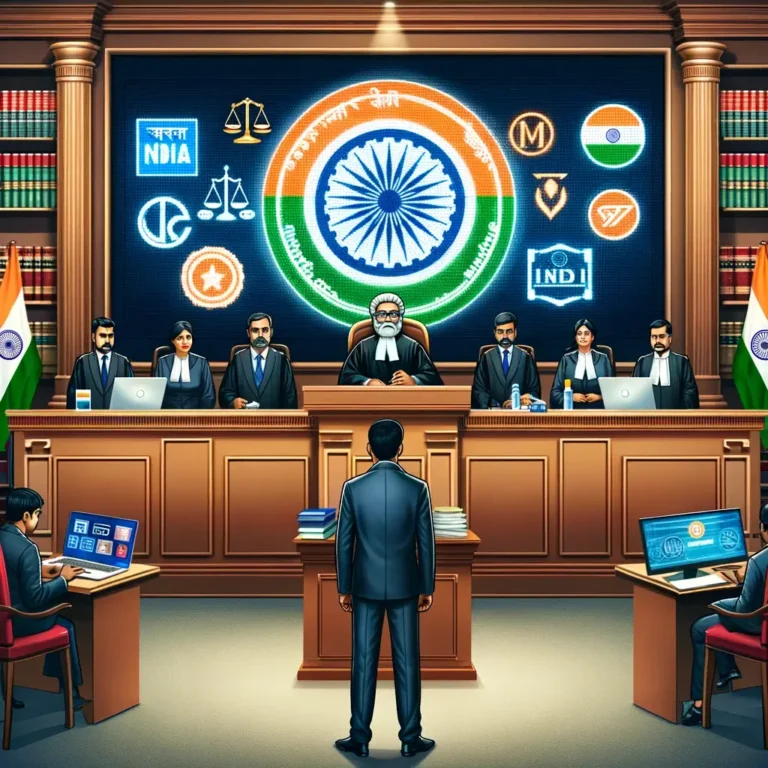In this article we have explained The Process Of Obtaining A Patent For An Invention
Introduction
Inventing something new and unique can be an exciting journey. In India, protecting your invention with a patent is a crucial step. A patent gives you the exclusive right to use your invention, preventing others from making, using, selling, or importing it without your permission. This article simplifies the process of obtaining a patent in India, ensuring your innovative ideas are safeguarded.
Understanding Patents
What is a Patent?
A patent is a legal right granted by the government to an inventor. This right allows the inventor to exclude others from making, using, or selling their invention for a certain period, usually 20 years from the filing date of the patent application.
Why is a Patent Important?
A patent protects your invention, ensuring you can benefit from your creativity and hard work. It can be a critical asset for individuals or businesses, potentially leading to significant financial rewards, partnerships, and expansion opportunities.
Explaining The Process Of Obtaining A Patent For An Invention in India
Obtaining a patent in India involves several steps. Understanding these steps can make the process smoother and more efficient.
Step 1: Ensure Your Invention is Patentable
Not all inventions can be patented. Your invention must be new, involve an inventive step, and be capable of industrial application. It should not fall into the categories of inventions that are not patentable under Indian law, such as abstract ideas, natural phenomena, and traditional knowledge.
Step 2: Conduct a Patent Search
Before applying for a patent, it’s crucial to conduct a patent search. This search helps determine if your invention is unique and if there are existing patents or patent applications that are similar to your invention.
Step 3: File a Patent Application
Once you’ve determined that your invention is patentable and unique, the next step is to file a patent application with the Indian Patent Office. You can file a provisional application if your invention is still under development, giving you 12 months to file a complete application.
Provisional vs. Complete Application
A provisional application is a temporary application filed when your invention is not finalized. It provides the benefit of establishing an early filing date. A complete application is detailed and includes all aspects of the invention, including claims defining the scope of the invention.
Step 4: Publication of the Application
After filing, your patent application will be published 18 months from the filing date. This publication allows the public to examine the details of your invention.
Step 5: Request for Examination
To proceed with the patent process, you must request an examination. The Indian Patent Office assigns an examiner to review your application to ensure it meets all patentability criteria.
Step 6: Respond to Objections
The examiner may raise objections to your application. You will have the opportunity to respond to these objections, amend your application if necessary, and argue your case.
Step 7: Grant of Patent
If the examiner is satisfied with your responses and the application meets all requirements, the patent will be granted. You will receive a patent certificate, and your invention will be protected under Indian law.
Conclusion
Obtaining a patent in India is a detailed process that requires thorough preparation and understanding of the law. By ensuring your invention is patentable, conducting a diligent patent search, and navigating the application process carefully, you can secure the exclusive rights to your invention. A patent not only protects your innovative ideas but also opens up new opportunities for commercialization and growth.
FAQs on Obtaining a Patent in India
1. What is a patent?
A patent is a legal right granted to an inventor to prevent others from making, using, selling, or importing their invention without permission for a specific period.
2. How long does a patent last in India?
A patent in India lasts for 20 years from the date of filing the patent application.
3. What can be patented in India?
Inventions that are new, involve an inventive step, and are capable of industrial application can be patented in India.
4. What cannot be patented in India?
Inventions related to abstract ideas, natural phenomena, and traditional knowledge cannot be patented in India.
5. Is a patent search necessary?
Yes, a patent search is necessary to determine if your invention is new and to identify any similar existing patents or applications.
6. What is a provisional patent application?
A provisional patent application is a temporary application filed when your invention is not yet complete, securing an early filing date.
7. How do I file a patent application in India?
A patent application can be filed with the Indian Patent Office either online or offline, including detailed descriptions and claims of the invention.
8. What is the difference between a provisional and a complete patent application?
A provisional application is an initial application without complete details, while a complete application includes the full disclosure of the invention and its claims.
9. When is a patent application published?
A patent application is published 18 months after the filing date, making the details of the invention available to the public.
10. What is the examination process for a patent?
The examination process involves a review by a patent examiner to ensure the application meets all patentability criteria, including novelty and inventiveness.
11. What happens if there are objections to my patent application?
If objections are raised, the applicant can respond with arguments or amendments to overcome these objections.
12. How long does it take to get a patent in India?
The time to obtain a patent in India can vary but typically takes a few years, depending on the examination process and any objections raised.
13. Can a patent be renewed after 20 years?
No, patents in India cannot be renewed after their 20-year term expires.
14. Can I patent an idea in India?
Only concrete inventions with a specific application can be patented, not mere ideas.
15. What are the fees for filing a patent application in India?
The fees vary depending on the type of applicant (individual, small entity, or large entity) and the type of application (provisional, complete, etc.).
16. Can a foreigner file a patent in India?
Yes, foreigners can file patent applications in India, either directly or through the Patent Cooperation Treaty (PCT) route.
17. What is the Patent Cooperation Treaty (PCT)?
The PCT is an international treaty that allows inventors to file a single international patent application to seek patent protection in multiple countries.
18. Do I need a patent agent to file a patent application in India?
While it’s not mandatory, hiring a patent agent can help navigate the complex patent filing and examination process.
19. What is the role of a patent agent?
A patent agent is authorized to act on behalf of the applicant for the purpose of filing and processing patent applications.
20. Can software be patented in India?
Software per se is not patentable in India, but software combined with hardware that results in a novel invention may be patentable.
21. How do I check the status of my patent application?
The status can be checked online through the Indian Patent Office’s website using the application number.
22. What is a patent opposition?
A patent opposition is a procedure that allows third parties to challenge the grant of a patent before or after it has been issued.
23. Can patents be enforced internationally?
Patents are territorial rights; enforcement is limited to the country in which the patent is granted. However, filing through the PCT can streamline international protection.
24. What happens if my patent is infringed?
You can take legal action against the infringer, seeking remedies such as injunctions, damages, or compensation.
25. Can a patent be sold or licensed?
Yes, patents can be sold, transferred, or licensed to others, providing a source of revenue for the inventor.
26. What is the significance of the patent claims?
Patent claims define the scope of protection granted by the patent and are crucial in determining infringement.
27. How detailed should the patent application be?
The application should fully disclose the invention to enable a person skilled in the art to carry it out, including detailed descriptions and drawings if necessary.
28. Can I discuss my invention publicly before filing a patent application?
Public disclosure before filing can jeopardize the novelty of the invention, making it potentially unpatentable.
29. What is a patent infringement analysis?
A patent infringement analysis determines whether a product or process infringes on the claims of a granted patent.
30. Can the patent application process be expedited?
Yes, an expedited examination can be requested under certain conditions, speeding up the review process.
















